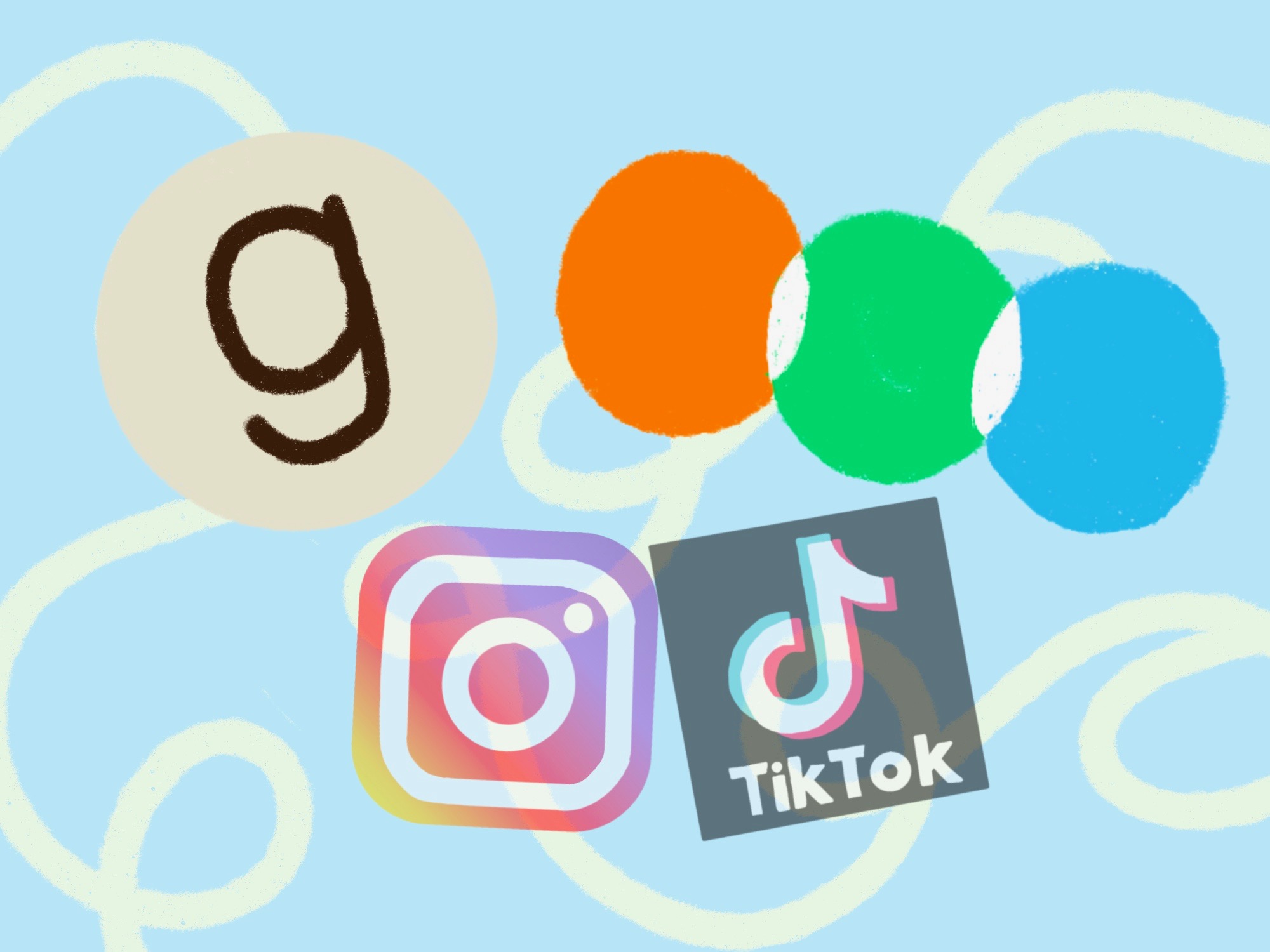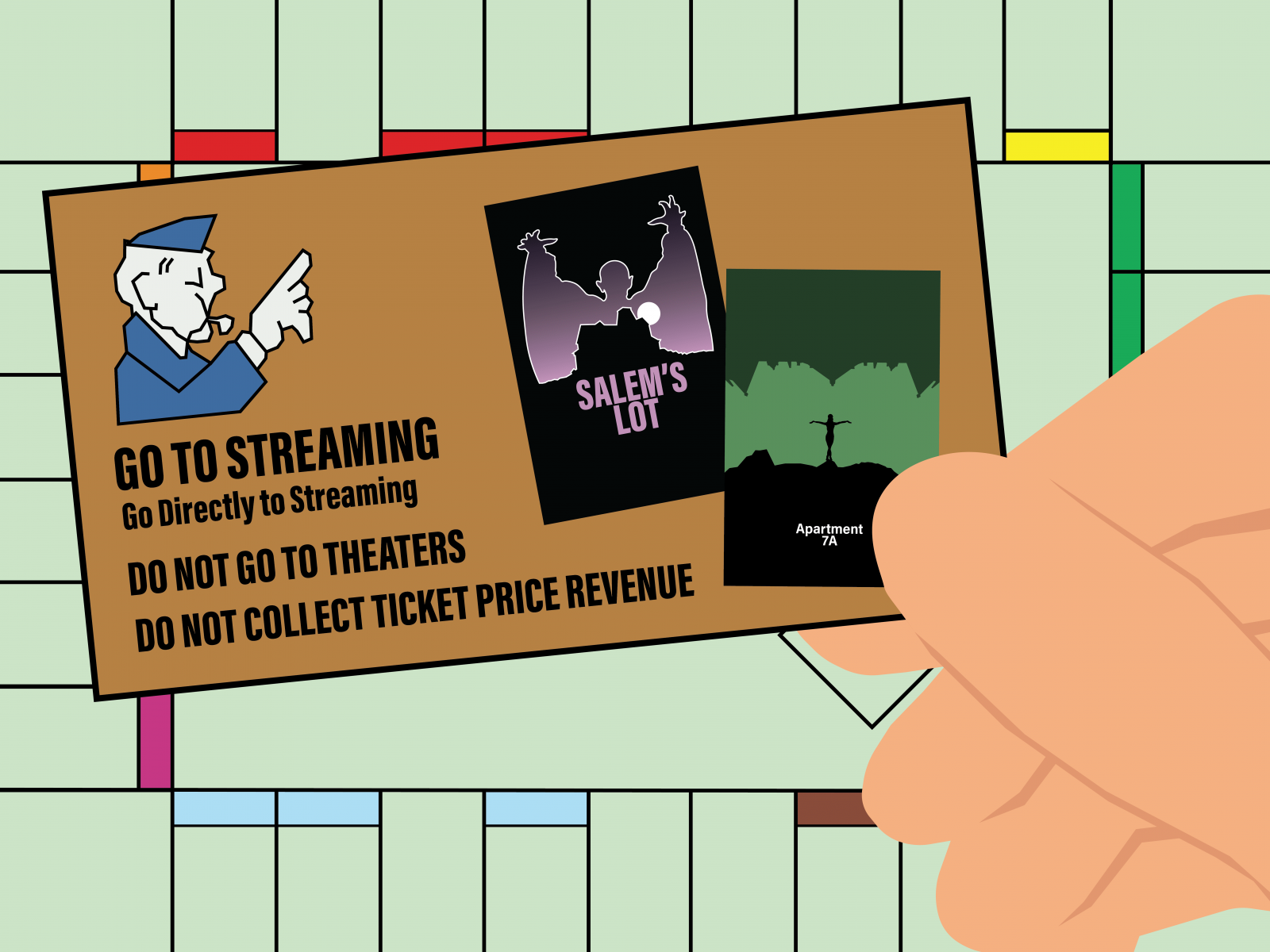If we’re being honest, social media can definitely be an anxiety-inducing environment.

When I open social media platforms like Instagram, I get ambushed with hundreds of different posts from my friends in an instant. Most times, it’s not even my friends’ posts that I scroll through. Instead, I see posts from friends of friends or old classmates that I don’t care about. These are people who I probably haven’t interacted with in years, or, honestly, ever.
I’m constantly seeing what all these random people are doing, even if I really don’t want to. To be honest, I don’t need to see how well the girl who hated me in high school is doing in college. I don’t care.
However, when I close out of Instagram, I’m constantly left with an unsettling feeling — a feeling within my own online portrayal.
I ask myself: Does my feed look better than theirs? Who’s having more fun? Should I post this photo to show them that I’m cool?
Social media has turned into a competition where people can profit off displaying a life that is far from reality — and it’s only gotten worse since I’ve been in college.
The ability to connect with people when you’re unable to see them in real life gives me faith in the idea of social media. I don’t necessarily think all of it’s bad, but I wanted to find a different way to connect with friends beyond artificial photo updates.
In the search for this new way to connect, I discovered Letterboxd: A social media app for film.
On Letterboxd, you can rate movies you’ve watched, creating a timeline of all the films you’ve logged and when. You can also leave comments on other users’ film reviews, create “watch lists” of movies and read articles about new movies and filmmakers. You can follow your friends and get notified when they log a new film and view their activity on the app.
Social media for film lovers — what could be better?
When I first downloaded Letterboxd during quarantine, none of my friends had it yet. I mainly used it as a personal movie diary — and it was so much fun.
I spent hours on the app, falling down rabbit holes as I discovered new directors and films. Letterboxd helped me expand my movie taste and introduced me to films that I wouldn’t have thought to watch otherwise.
As I became even more obsessed, I finally convinced all of my friends and other film fans who I knew to download the app and send me a friend request. Naturally, they all became enthralled.
Letterboxd added a new layer to movie nights with friends as we shared our ratings and reviews with one another. Our lunchtime talks simply weren’t complete without mentioning a movie that one of us recently added to our watchlists or a controversial review.
I know this sounds really nerdy, but Letterboxd truly tied me and my friends together.
Throughout my quest to find new ways on how to connect with others, I found many more apps that were similar to Letterboxd, but for other niches. Goodreads, for example, is a comparable platform, except it’s used for books.
What I love about Goodreads and Letterboxd is that they’re tailored to a specific subject and remove the pressure that’s induced in other social media apps.
When I open Letterboxd, I only see what my friends are doing in relation to films. I can’t compare myself to anything else. There are no images of people watching the movies, who they’re watching with or how they’re watching it.
The only identifier is a person’s username, taking away from the superficiality of typical social media platforms like Instagram, Snapchat, etc.
Sure, you can go “viral” on Letterboxd if one of your reviews gets enough likes, but it’s not to the same extent and pressure as becoming “TikTok famous.”
This detachment from the actual user’s life is what makes Letterboxd such an enjoyable app. You connect and communicate with people who share similar interests, not worrying about who has the most followers or who the most review likes.
At the end of the day, everyone on the app is just there because they love movies. So, if that sounds like you, send me your username. Let me be the one to put you on.



























































































































